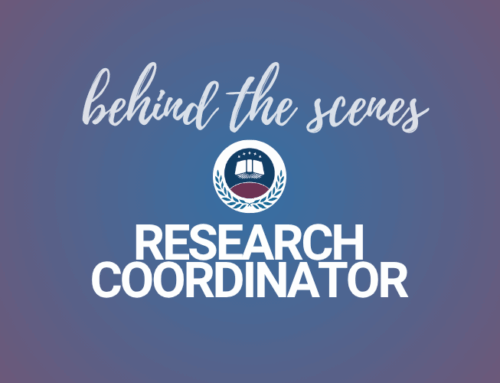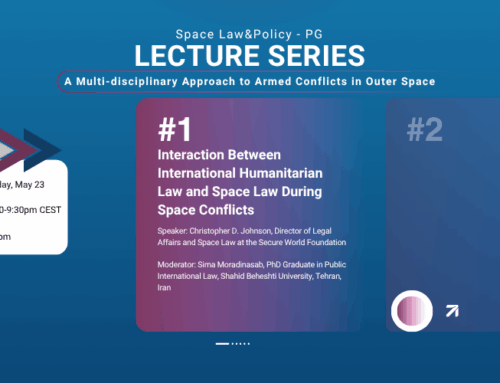Unconventional paths come with challenges and problems. These challenges and problems are not roadblocks. They are actually stepping stones to a stronger version of yourself.
Pankaj Mehta is a space lawyer based in India. He has been involved with SGAC for four years and works in his present capacity as a Space Law & Policy Group Research Coordinator. Recently, he accepted a position as a Policy Specialist at SES Satellites in India.
I wake up early to interview Pankaj, circumventing the timezone obstacle between North America, where I am based, and India. Though this is the first time we’ve met, I am greeted with warmth and familiarity. Throughout our conversation, Pankaj’s enthusiasm and openness assures me that the sacrifice of sleep is well-worth my while.
The unconventional path
Pankaj has always had a back-pocket fascination with space exploration, but found his academic strengths better suited for law. The first time he heard the term ‘space law’ was during an undergraduate lecture when his professor was listing off-the-cuff examples of uncommon areas of study.
At first, he thought, is that even a thing? But the idea sparked something in him–a way to combine two seemingly disparate interests in space and law, as well as an opportunity to venture outside India.
“I’ve always had a knack for unconventional paths.” He tells me.
Pankaj grew up in the remote town of Mandla, a name that is unfamiliar even to many Indians. It was only through his pursuit of international space law that he was afforded the chance to see the world. “My [home]town doesn’t even have a [well-connected] railway station or an airport.”
During his undergraduate studies, he secured an internship at UNIDROIT that offered him a term in Italy. Pankaj notes that the support of his family and SGAC mentor have been crucial to staying the course.
“I had the opportunity to go to Italy, to live in Rome and work at an international organization on this amazing project–met so many people–but even with all this, I was still feeling like am I doing the right thing?” Pankaj shares. “Because it seems like I’m the only one doing this.”
While pursuing his bachelor’s degree at Dharmashastra National Law University, Pankaj worked at The Space Court Foundation as a Research Lead, then later in on the Editorial Board before going on to complete an Advanced LL.M. in Air and Space Law from Leiden University. “It was only when I got to Leiden University [that] I realized I was not the only one.” He says. “It was such a great feeling because every one of my classmates [had chosen] an unconventional path.”
In his last semester at Leiden, despite workload concerns from his professors, Pankaj simultaneously took an internship position at SES Satellites Netherlands, essentially doubling his workload in an already exhaustive program. But this didn’t scare Pankaj.
“I had such an amazing time [at SES Satellites] working for the regulatory and legal affairs team because I was doing licensing and authorization work. I was doing export control. I was doing policy work [on matters related to] the European Commission [and the] ITU.”
As it turns out, Pankaj’s against-the-grain career philosophy has worked in his favour again. He recently accepted a full-time position at SES Satellites in India where he is responsible for internal policy matters across global locations. He handles areas like corporate compliance policy, working with almost all business units at SES to advise on policy matters.
Looking back, Pankaj credits his SGAC-paired mentor for providing valuable guidance as he entered the field of Space Law. She encouraged him to attend open houses and apply for internships, ultimately leading him to his current role. Hearing this, I asked Pankaj if he himself had an interest in mentoring. “I actually made a promise to my mentor that I would enter the [SGAC] mentorship program.” He replies, acknowledging the obstacles that young professionals face when entering a field like Space Law which is, to this day, somewhat uncharted.
Pankaj wants aspiring professionals to, as they plan out their next steps, keep in mind that the space industry is experiencing fast and ongoing expansion. “The space sector is evolving rapidly, whether it’s new regulations, emerging technologies, or geopolitical shifts. [Stay] informed and [be] flexible.”
I asked Pankaj what he saw as some pressing industry topics that he’d like to see movement in. For him, improving the pace of regulatory adaptation to new tech is a priority.
“Technological advancements like satellite mega constellations, on-orbit servicing, space mining…all [these] things are outpacing the development [of] legal and policy frameworks, and it creates a regulatory gap.” He answered. “I would want a more proactive and globally coordinated approach to regulations that would inspire action.”
Another initiative he’d love to see expansion in is diversity and inclusion. He appreciates the outreach toward women that many prevalent partners have taken to, but would like to see a wider net to include minority groups related to sexuality, gender, or religion. As a proud intersectional minority, Pankaj believes there is more we can do to guide those who, like him, are drawing out new blueprints for future generations.
“Unconventional paths come with challenges and problems.” Pankaj tells me. “These challenges and problems are not roadblocks. They are actually stepping stones to a stronger version of yourself.”
Want to nominate a colleague for the next SLP Highlight? You can do so completely anonymously by filling out this google form: https://forms.gle/Qj4vrLbCfQf3MJXDA.
This post was written by Mackenzie Pereira, SLP Professional Development team member.







